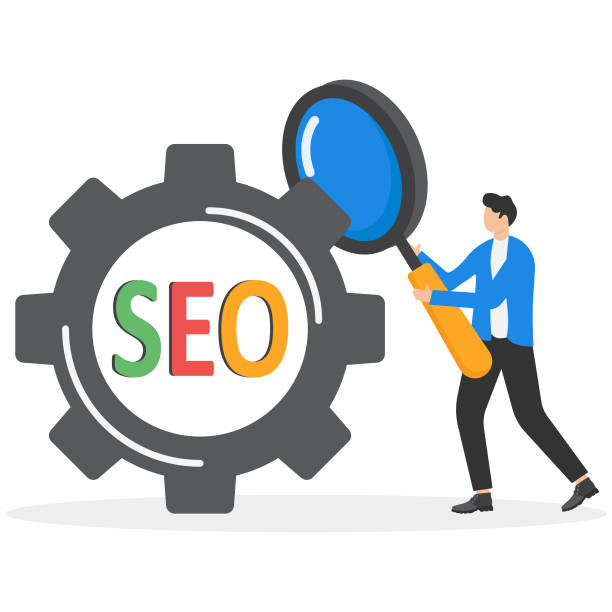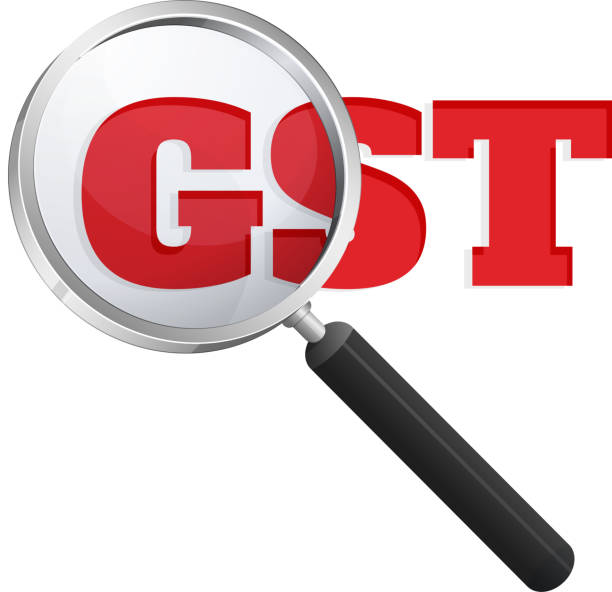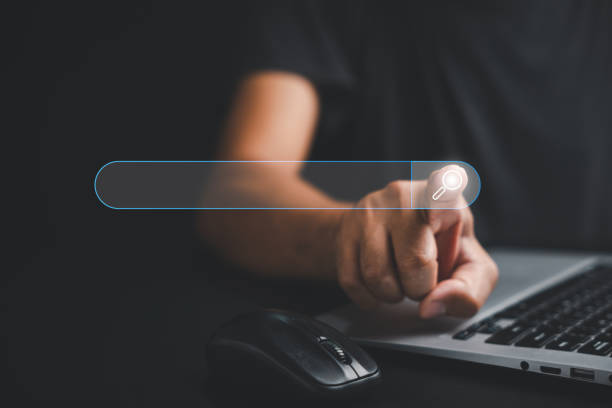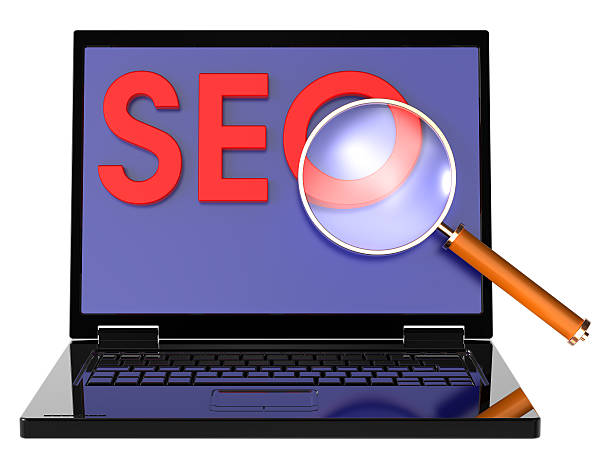What is Off-Page SEO and Why is it Important?
Off-Page SEO is a set of actions that are performed outside of your website to improve your site’s ranking in Google and other search engine results. In fact, off-page SEO shows search engines that your website is credible, popular, and trustworthy. The importance of off-page SEO is clear, because without it, even the best websites with great content may get lost in the depths of search results. Off-page SEO includes various techniques such as link building, content marketing, social media, branding, and online public relations. The more and the higher the quality of the incoming links to your website, the higher your credibility and ranking will be with Google. Off-page SEO helps you get seen. If you have a website that no one visits, it is virtually useless. Off-page SEO increases your chances of attracting new customers and increasing sales by increasing website traffic. Also, a proper off-page SEO strategy helps you to be recognized as an authority in your industry and gain the trust of your audience. Off-page SEO increases awareness of your brand, and over time, more customers will prefer you to your competitors. Ultimately, off-page SEO is a long-term investment that can bring very valuable results to your business.
How much does it cost you to lose business leads due to an unprofessional site? Solve this problem forever with professional corporate website design by Rasaweb!
✅ Increase the credibility and trust of potential customers
✅ Easier attraction of new business leads
⚡ Get a free consultation now!
Link Building: The Beating Heart of Off-Page SEO
Link building can be considered the most important part of off-page SEO. Links act as “votes of confidence” from other websites to your website. The more credible the websites that link to you, the stronger this vote of confidence will be. There are different types of link building, including:
- Natural Links (Editorial Links) These types of links are given naturally and without your request from other websites to your content. For example, if a blogger mentions one of your articles in an article and links to it, this is a natural link.
- Manual Links (Manual Link Building) These types of links are obtained with your effort and follow-up. For example, you can exchange links with other websites or guest write on blogs related to your field and link to your website in the text of the article.
- Self-Created Links You create these types of links yourself on other websites. For example, links that you put on your social networks, forums, or online profiles.
Click here to preview your posts with PRO themes ››
When link building, pay attention to these points:
- Quality is preferred over quantity. Getting a few links from credible websites is better than getting dozens of links from low-quality websites.
- Pay attention to the relevance of the links. Links that you receive from websites related to your field are more valuable.
- Use appropriate Anchor Text. Anchor text is the text that is linked. Try to use keywords related to the content of the linked page in the anchor text.
Link building is a time-consuming and difficult process, but it is essential to improve your website’s ranking in search results. With patience and using appropriate strategies, you can create high-quality links for your website and benefit from them.
Content Marketing: Creating Attractive and Valuable Content for Off-Page SEO
Content marketing is a powerful strategy in off-page SEO that helps you attract your target audience and convert them into customers by producing attractive and valuable content. Your content can include articles, blogs, videos, infographics, podcasts, and other content formats.
Your content should be:
- Relevant. Your content should be relevant to the needs and interests of your target audience.
- Valuable. Your content should provide useful and practical information to the audience.
- Attractive. Your content should be designed to attract the audience and encourage them to read, watch, or listen to it.
- Shareable. Your content should be designed so that the audience shares it with others.
When you produce high-quality content, more people link to your website and share your content on social networks. This helps improve your website’s ranking in search results and increase your website traffic. Off-page SEO brings you closer to your goal.
| Content Type | Benefits for Off-Page SEO |
|---|---|
| Articles and Blogs | Increase website traffic, attract incoming links, improve keyword ranking |
| Videos | Attract more audience, increase time spent on the site, improve ranking in video search results |
| Infographics | Easy sharing on social networks, attract incoming links |
| Podcasts | Access to new audiences, create a strong connection with the audience |
Social Networks: A Powerful Tool for Off-Page SEO
Social networks are not only used to connect with friends and family, but they can also be a powerful tool for off-page SEO. By being active on social networks and sharing your content, you can:
- Increase awareness of your brand. The more people who know your brand, the more likely they are to visit your website and use your products or services.
- Increase your website traffic. By placing a link to your website in your social media profiles and in your posts, you can direct people to your website.
- Increase your brand credibility. The more interaction you have with your audience on social networks, the more credible your brand becomes.
- Attract more incoming links (Backlinks). If your content is noticed on social networks, the more likely it is that other websites will link to it.
To use social networks effectively in off-page SEO, pay attention to these points:
- Be present on appropriate social networks. Not all social networks are suitable for all businesses. Before starting an activity on a social network, research whether your target audience is present there or not.
- Produce attractive and valuable content. Your content should be attractive and valuable to your target audience. Try to use different content formats such as images, videos, and surveys.
- Interact with your audience. Respond to the comments and questions of your audience and communicate with them.
- Post regularly. Try to post regularly on social networks so that your audience is aware of your activity.
Social networks can be a very effective tool for off-page SEO, but only if you use them correctly.
Are you disappointed with the low conversion rate of your online store? Rasaweb turns your online store into a powerful tool for attracting and converting customers!
✅ Significant increase in the conversion rate from visitor to buyer
✅ Unique user experience to increase customer satisfaction and loyalty⚡ Get a free consultation from Rasaweb!
Branding: Creating a Strong Brand for Off-Page SEO
Branding is the process by which you create a unique identity for your business. A strong brand can help you to:
- Stand out from the competition. In a competitive market, having a strong brand can help you stand out from the competition and attract customer attention.
- Gain customer trust. Customers are more likely to trust brands that they know and respect.
- Increase customer loyalty. Customers who are loyal to a brand are more likely to buy from it again and recommend it to others.
- Improve your website’s ranking in search results. Search engines give a better ranking to brands that are popular and credible.
To create a strong brand, you should pay attention to these points:
- Choose a suitable brand name. Your brand name should be easy to remember, relevant to your field, and available.
- Design an attractive logo. Your logo should be professional, unique, and recognizable.
- Create a clear and concise brand message. Your brand message should briefly and clearly express the values and goals of your business.
- Create a unified visual identity. All visual elements of your brand, including colors, fonts, and images, should be coordinated with each other.
- Promote your brand consistently. Use all your marketing channels, including your website, social networks, online advertising, and print advertising, to promote your brand.
Branding is a time-consuming process, but investing in it can bring very valuable results to your business. A strong brand can help you attract more customers, increase their loyalty, and improve your website’s ranking in search results.
Online Public Relations: Building Positive Relationships with Media and Influencers for Off-Page SEO
Online public relations means creating and maintaining positive relationships with media, bloggers, influencers, and other influential people in the online space. By building good relationships with these people, you can:
- Publish news and information about your business in the media. Publishing news and information about your business in the media can help increase awareness of your brand and attract new customers.
- Ask bloggers and influencers to write or talk about your products or services. Recommendations from bloggers and influencers can have a significant impact on customers’ purchasing decisions.
- Attend online and offline events and connect with important people in your industry. Attending events can help you meet new people, gain new information, and increase your brand credibility.
To establish effective online public relations, pay attention to these points:
- Identify the media, bloggers, and influencers related to your field. Before starting to communicate with these people, research who are influential in your field and what type of content they produce.
- Make your communications personalized. Try to send your emails and messages in a personalized way for each individual and show them that you are interested in their work.
- Provide value. Provide useful and valuable information to the media, bloggers, and influencers and help them produce better content.
- Follow up. After sending an email or message, follow up and make sure they have received your message and responded to it.
Online public relations can be a very effective strategy for off-page SEO, but only if it is implemented correctly. By building positive relationships with the media and influencers, you can increase your brand credibility, increase your website traffic, and improve your website’s ranking in search results.
Optimizing Social Media Profiles
Your social media profiles are often the first thing people see when searching for your brand online. Optimizing these profiles for search can help you increase your visibility, drive traffic to your website, and build your brand credibility. Off-page SEO helps you achieve this goal.
Here are some tips for optimizing your social media profiles:
- Use relevant keywords in your username, name, and biography.
- Choose a high-quality profile picture and an attractive cover photo.
- Add a link to your website.
- Keep your contact information up to date.
- Post regularly and interact with your audience.
By optimizing your social media profiles, you can increase the chances of your brand being seen and drive more traffic to your website. Off-page SEO also helps you gain credibility.
| Social Network | Optimization Tips |
|---|---|
| Use relevant hashtags, create attractive visual content, interact with followers | |
| Complete your profile with full details, publish specialized articles, network with industry professionals | |
| Use keywords in tweets, participate in related conversations, retweet and like other people’s tweets | |
| Create a business page, publish diverse content, targeted advertising |
Monitoring and Analyzing Off-Page SEO Performance
After implementing off-page SEO strategies, it is important to monitor and analyze your performance regularly. This will help you to:
- Understand what works and what doesn’t.
- Change your strategies based on the results.
- Continuously improve.
Some of the most important metrics to monitor include:
- Keyword ranking
- Website traffic
- Incoming links
- Social media engagement
To monitor and analyze off-page SEO performance, you can use various tools such as Google Analytics, Google Search Console, and social media analytics tools. Off-page SEO requires careful analysis.
Are you losing potential customers due to an unprofessional website? Rasaweb is your answer! With our specialized corporate website design services:
✅ Improve the credibility and position of your business
✅ Experience attracting more targeted customers
⚡ Take action now to receive a free consultation!
Common Mistakes in Off-Page SEO and How to Avoid Them
Like any other marketing strategy, off-page SEO can also be associated with mistakes. Avoiding these mistakes can help you get better results and avoid wasting your time and money.
Some of the most common mistakes in off-page SEO include:
- Buying links
- Using low-quality links
- Focusing too much on keywords
- Ignoring user experience
- Failure to monitor and analyze performance
To avoid these mistakes, you should:
- Use natural and high-quality links.
- Focus on creating valuable and engaging content.
- Prioritize user experience.
- Regularly monitor and analyze your performance.
By avoiding these mistakes, you can increase your chances of success in off-page SEO.
The Future of Off-Page SEO
The world of SEO is constantly changing, and off-page SEO is no exception. To succeed in off-page SEO in the future, you must:
- Stay up to date and be aware of the latest changes in search engine algorithms.
- Focus on creating high-quality and valuable content.
- Prioritize user experience.
- Use new technologies such as artificial intelligence and machine learning.
By following these tips, you can succeed in the ever-changing world of off-page SEO and improve your website’s ranking in search results. Off-page SEO helps you achieve your goals.
Frequently Asked Questions
| Row | Question | Answer |
|---|---|---|
| 1 | What is Off-Page SEO? | Off-Page SEO refers to a set of actions that are performed outside of your website to improve its ranking in search engines. These actions include building backlinks, presence on social networks, branding, etc. |
| 2 | Why is Off-Page SEO so important? | Off-Page SEO shows search engines that your website is credible, popular, and trustworthy. High-quality backlinks from reputable sites are a strong signal for better rankings and help increase your domain authority. |
| 3 | What are the most important components of Off-Page SEO? | The most important components of Off-Page SEO are: Link Building, Content Marketing, Social Media Marketing, Influencer Marketing, and Online Reputation Management. |
| 4 | What is a backlink and why is it important for Off-Page SEO? | A backlink is a link from another website that points to your website. These links act as a “vote of confidence” from Google and indicate the credibility of your content. The greater the number and quality of backlinks, the better your site’s ranking will be. |
| 5 | What types of backlinks are most influential on SEO? | The two main types of backlinks include DoFollow and NoFollow. DoFollow backlinks transfer authority (Link Juice) and directly affect ranking. NoFollows do not transfer authority but can still generate traffic and help make the link profile look natural. (Also UGC and Sponsored) |
| 6 | How can I create high-quality backlinks for my site? | To build high-quality backlinks, you can use methods such as: producing excellent and shareable content, guest posting on related and reputable sites, broken link building, digital PR, and analyzing competitor backlinks. |
| 7 | What are Toxic Backlinks and how do they affect a site? | Harmful or spam backlinks are links that point to your site from low-quality, spam, or irrelevant websites. These backlinks can damage your site’s ranking and even lead to penalties from Google algorithms. |
| 8 | What is the role of social networks in Off-Page SEO? | Although social signals (likes, shares, etc.) are not directly a ranking factor, they help Off-Page SEO. They increase content visibility, increase direct traffic to the site, and ultimately increase the chances of earning natural backlinks and improving brand awareness. |
| 9 | What is the importance of diversity in a backlink profile? | Diversity in a backlink profile means that your links come from different sources (blogs, forums, news sites, directories), with diverse anchor texts, and with a combination of DoFollow and NoFollow links. This diversity shows Google that your link building is natural and organic. |
| 10 | What are the common mistakes in Off-Page SEO that should be avoided? | Common mistakes include: buying backlinks in bulk and from low-quality sources, over-linking with target keywords (Over-optimization), ignoring quality in favor of quantity in backlink building, lack of diversity in the link profile, and ignoring harmful backlinks and not Disavowing them. |
And other services of Rasa Web advertising agency in the field of advertising
Smart Link Building: A creative platform to improve customer acquisition by optimizing key pages.
Smart Digital Advertising: Transform digital branding with the help of SEO-driven content strategy.
Smart Social Media: A new service to increase user engagement through an SEO-driven content strategy.
Smart UI/UX: Designed for businesses looking to analyze customer behavior by optimizing key pages.
Smart Reportage: A dedicated service to grow website traffic based on custom programming.
And more than hundreds of other services in the field of internet advertising, advertising consulting and organizational solutions
Internet Advertising | Advertising Strategy | Advertising Reportage
Resources
HubSpot: The Beginner’s Guide to Off-Page SEO,Ahrefs: What is Off-Page SEO?,Moz: Off-Page SEO: Factors Beyond Your Website,Neil Patel: Off-Page SEO: The Definitive Guide
? Are you ready to shine your business in the digital world? Rasaweb Digital Marketing Agency offers the best comprehensive solutions including custom website design, SEO optimization, and smart social media management for your sustainable growth and success, with a specialized and creative team.
📍 Tehran, Mirdamad Street, next to the Central Bank, South Kazerun Alley, Ramin Alley No. 6












